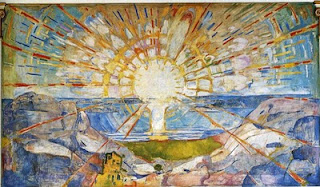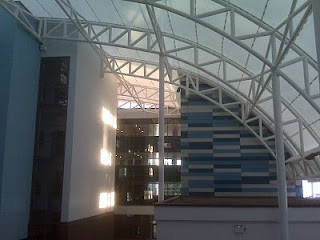Taize Service: Eating Lunch in the Evening

This evening we hosted a Taize service at church. About 50 people came, and it was a really refreshing change to be in the older half of the congregation! We were also fortunate to have Brother Paolo from the Taize Community with us. He gave a little encouragement on prayer and praying to begin with. Much of it chimed with my experience. Prayer, he said, is not something we can get better at. It is more like eating lunch. We can all do it. We need to do it regularly. A very helpful image for me. The service itself was beautifully put together (and I can say that because I had nothing to do with it). Thanks to Heather and all involved. It was a rare treat to sit on a prayer stool and enjoy meditative singing, silence and scripture. My lunch was late today, but it was worth the wait!



